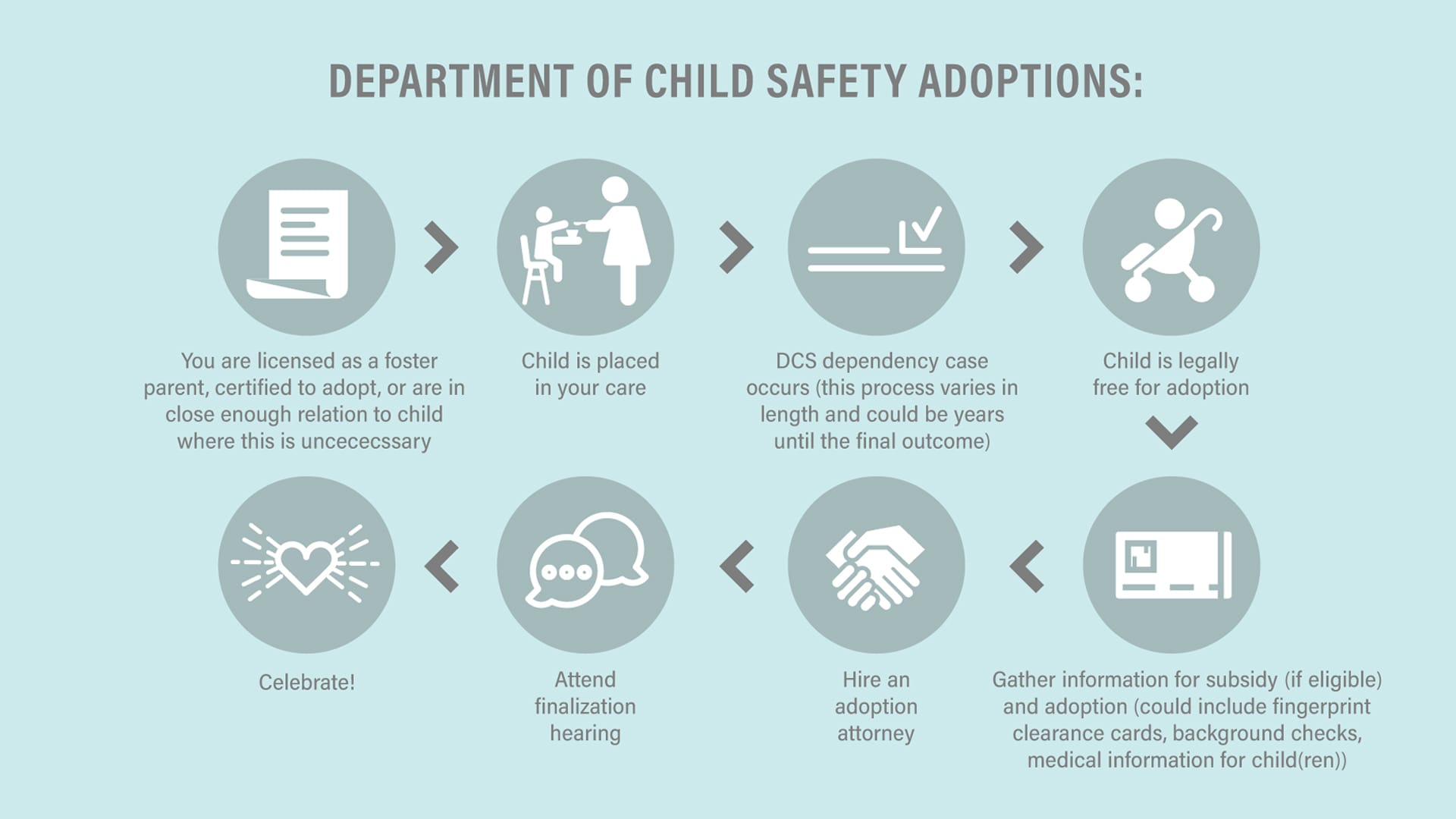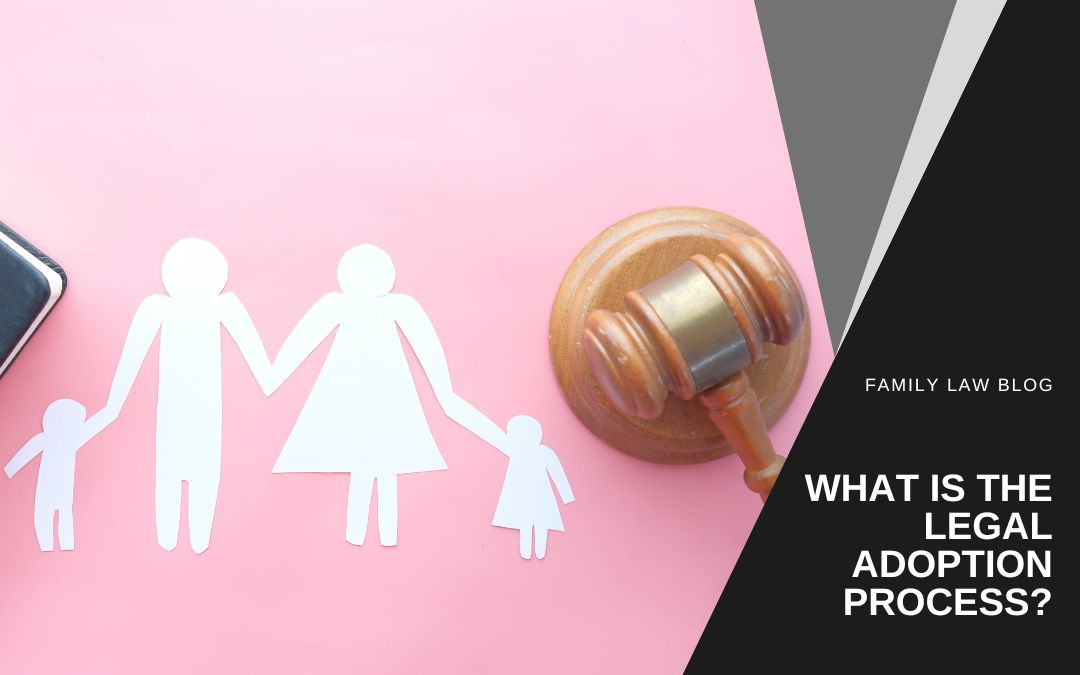Legal Process of Adopting a Child is a complex and often emotional journey. It involves navigating a labyrinth of legal requirements, procedures, and paperwork. This process can be daunting, but with careful planning and preparation, it can be a rewarding experience.
Understanding the legal framework is crucial, and this guide will provide a comprehensive overview of the key steps involved.
Adoption, the legal process of taking a child into your family and raising them as your own, is a life-changing decision. It can be a fulfilling and joyful experience, but it’s essential to understand the complexities of the legal process involved.
This guide will Artikel the different types of adoption, eligibility requirements, and the step-by-step legal process. We will also delve into the essential legal documents and forms required to complete the adoption process successfully.
Types of Adoption

Adoption is the legal process by which a person assumes the parental responsibilities and rights of another person, usually a child. There are various types of adoption, each with its own legal requirements, procedures, and timeframes. Understanding the different types of adoption is crucial for prospective adoptive parents to choose the path that best suits their circumstances and goals.
Domestic Adoption
Domestic adoption involves adopting a child within the same country. This type of adoption is typically governed by state laws and involves working with a licensed adoption agency or attorney.
- Private Adoption: This type of adoption involves working directly with birth parents through an attorney or adoption agency. The adoptive parents often have more control over the process, but it can be more expensive and time-consuming.
- Agency Adoption: This type of adoption involves working with a licensed adoption agency that handles the legal and logistical aspects of the adoption. Agencies typically have a network of birth parents and provide support throughout the process.
- Foster Care Adoption: This type of adoption involves adopting a child who is in the foster care system. Foster care adoption is often considered a more affordable option, but it can be challenging due to the complex legal and emotional factors involved.
Navigating the legal process of adopting a child can be a complex and emotionally charged journey. From navigating legal paperwork to understanding the financial implications, it’s essential to have a comprehensive understanding of the steps involved. For those seeking financial protection during this process, a comprehensive insurance policy can provide peace of mind.
Get a USAA Insurance Quote: A Comprehensive Guide can offer valuable insights into the various coverage options available to ensure your family is well-protected throughout the adoption process and beyond.
International Adoption
International adoption involves adopting a child from another country. This type of adoption is governed by both the laws of the adoptive parent’s country and the laws of the child’s country of origin.
- Hague Convention Adoption: The Hague Convention on the Protection of Children and Co-operation in Respect of Intercountry Adoption establishes a framework for international adoptions to ensure the safety and well-being of children. Countries that are party to the Hague Convention must comply with specific requirements, including:
- Ensuring that the child is eligible for adoption;
- Conducting a home study to ensure that the adoptive parents are suitable;
- Providing post-adoption support;
- Requiring a legal process for the adoption to be finalized.
- Non-Hague Convention Adoption: Countries that are not party to the Hague Convention have their own regulations for international adoption. These regulations can vary significantly from country to country, and the process can be more complex and time-consuming.
Legal Requirements and Procedures
The legal requirements and procedures for adoption vary depending on the type of adoption and the jurisdiction involved. In general, the adoption process involves several steps:
- Home Study: This is an assessment of the adoptive parents’ home and family to ensure that they are suitable to care for a child.
- Background Checks: These checks are conducted on the adoptive parents to verify their identity, criminal history, and financial stability.
- Legal Counsel: Adoptive parents should consult with an attorney specializing in adoption law to ensure that they understand the legal requirements and procedures.
- Court Proceedings: The adoption must be finalized in court. This typically involves a hearing where the judge reviews the case and makes a decision on whether to grant the adoption.
Timeframes for Adoption
The timeframe for adoption can vary significantly depending on the type of adoption and other factors, such as the availability of children, the legal process, and the involvement of birth parents.
- Domestic Adoption: The timeframe for domestic adoption can range from a few months to several years.
- International Adoption: International adoption can take several years, particularly for Hague Convention adoptions.
- Foster Care Adoption: Foster care adoption can be relatively quick, as the child is already in the foster care system and the legal process is streamlined.
Eligibility Requirements: Legal Process Of Adopting A Child
Adopting a child is a complex process that requires meeting certain eligibility requirements to ensure the best interests of the child are met. These requirements vary depending on the type of adoption, the child’s age, and the jurisdiction where the adoption is taking place.
General Eligibility Criteria
The following are general eligibility criteria that are commonly applied to prospective adoptive parents:
- Age: Most jurisdictions require adoptive parents to be a minimum age, typically 21 or 25 years old. This requirement ensures that adoptive parents are mature enough to handle the responsibilities of raising a child.
- Marital Status: While some jurisdictions allow single individuals to adopt, others may require prospective parents to be married. In some cases, unmarried couples may be able to adopt jointly if they meet specific criteria.
- Income: Financial stability is essential to provide for a child’s basic needs. Prospective adoptive parents may be required to demonstrate sufficient income to meet the child’s expenses. This may involve providing financial documents like tax returns or bank statements.
Navigating the legal process of adopting a child can be a complex and emotionally charged journey. From gathering paperwork to navigating court proceedings, the process demands significant time and energy. For military members who are also considering adoption, securing adequate insurance coverage is a vital step.
USAA offers specialized boat insurance plans tailored to the needs of military personnel, as outlined in this comprehensive guide Boat Insurance Quote USAA: A Guide for Military Members. Having the right insurance in place can provide peace of mind and financial protection during this life-changing transition.
- Criminal Background: A thorough criminal background check is usually conducted on prospective adoptive parents to ensure they have no history of criminal offenses that could pose a risk to a child’s safety.
- Home Study: A home study is a comprehensive evaluation conducted by a licensed social worker to assess the suitability of a prospective adoptive family. This study examines the family’s living environment, financial stability, and emotional readiness to care for a child.
- Medical and Psychological Evaluation: In some cases, prospective adoptive parents may be required to undergo medical and psychological evaluations to ensure they are physically and emotionally capable of caring for a child.
Requirements for International Adoption, Legal Process of Adopting a Child
Adopting a child from another country involves additional requirements and considerations. These often include:
- Country-Specific Requirements: Each country has its own specific requirements for international adoption. These may include age, marital status, and financial criteria, as well as cultural or religious considerations.
- Hague Convention: Many countries adhere to the Hague Convention on Intercountry Adoption, which sets international standards for adoption practices. This convention aims to protect children from illegal or exploitative adoptions.
- Cultural and Religious Considerations: Adoptive parents should be prepared to understand and respect the child’s cultural and religious background. This may involve learning about the child’s native language, traditions, and beliefs.
- Post-Adoption Support: International adoptions often require ongoing support for the child and the adoptive family. This may include assistance with cultural adjustment, language acquisition, and connecting with other adoptive families.
Legal Process

The legal process of adoption is a complex and multifaceted journey that requires careful planning, legal guidance, and emotional preparation. This process involves a series of steps, from the initial application to the finalization of the adoption. Each step is crucial and must be completed successfully to ensure a smooth and successful adoption.
Steps Involved in the Legal Adoption Process
The legal process of adoption involves several steps, each with its own set of requirements and procedures. These steps vary depending on the type of adoption, the state or jurisdiction, and the specific circumstances of the adoption.
- Initial Application:The adoption process begins with an initial application, which typically involves completing a comprehensive application form and providing necessary documentation, such as financial records, background checks, and medical information. The application is reviewed by the adoption agency or court, which may require additional information or documentation.
- Home Study:Once the initial application is approved, a home study is conducted. This involves a social worker or adoption agency representative visiting the prospective adoptive parents’ home to assess their suitability to care for a child. The home study evaluates factors such as the home environment, financial stability, and parenting skills.
- Matching with a Child:After the home study is completed, the prospective adoptive parents are matched with a child. This process can vary depending on the type of adoption. For example, in domestic adoption, the prospective adoptive parents may choose from a list of children available for adoption.
In international adoption, the process may involve working with an adoption agency in the child’s country of origin.
- Legal Proceedings:Once a match is made, the legal process begins. This typically involves filing a petition for adoption with the court and attending court hearings. The court will review the adoption plan and ensure that all legal requirements are met.
- Finalization of Adoption:The finalization of adoption is the culmination of the legal process. This involves a court hearing where the judge formally grants the adoption and issues a final adoption decree. Once the adoption is finalized, the adoptive parents have full legal custody and parental rights over the child.
Flowchart Illustrating the Stages of Adoption
The legal adoption process can be visualized using a flowchart, which Artikels the key milestones and decision points.
Flowchart:
Start
The legal process of adopting a child can be complex and lengthy, requiring careful consideration of financial and logistical factors. A key element is ensuring adequate insurance coverage, which may involve reviewing options for homeowner’s insurance, particularly if welcoming a child into your home.
For a comprehensive guide on obtaining Rhode Island home insurance quotes, visit Rhode Island Home Insurance Quotes: A Guide for Homeowners. Understanding your insurance needs can provide peace of mind as you navigate the emotional and legal aspects of adoption.
- > Initial Application
- > Application Review
- > Home Study
- > Home Study Approval
- > Matching with a Child
- > Legal Proceedings
- > Court Hearing
- > Finalization of Adoption
- > End
Decision Points:
Application Approval
If the initial application is not approved, the process may be terminated.
Home Study Approval
If the home study is not approved, the process may be terminated.
Matching with a Child
If no suitable match is found, the process may be delayed or terminated.
Court Hearing
If the court does not approve the adoption plan, the process may be terminated.
Key Milestones:
Initial Application
This marks the beginning of the legal adoption process.
Home Study Approval
This indicates that the prospective adoptive parents are deemed suitable to care for a child.
Matching with a Child
This is a significant step in the adoption process.
Finalization of Adoption
This marks the completion of the legal adoption process.
Legal Documents and Forms

The legal process of adoption involves numerous documents and forms that need to be completed and submitted to the relevant authorities. These documents serve various purposes, including demonstrating the adoptive parents’ suitability, outlining the adoption agreement, and formally recording the adoption.
Essential Documents and Forms
The specific documents and forms required for adoption may vary depending on the jurisdiction and type of adoption. However, some common documents include:
| Document Name | Purpose | Required Information |
|---|---|---|
| Home Study Report | To assess the adoptive parents’ suitability and ability to provide a safe and loving home for the child. | Personal and financial information, family history, references, and a detailed description of the home environment. |
| Adoption Agreement | To Artikel the terms of the adoption, including the legal rights and responsibilities of the adoptive parents and the child. | Details of the adoption process, legal guardianship, custody, and visitation rights. |
| Court Orders | To formally finalize the adoption and establish the legal relationship between the adoptive parents and the child. | Information about the adoption process, the parties involved, and the court’s decision. |
| Birth Certificate | To reflect the child’s new legal name and parents. | The child’s name, date of birth, and the adoptive parents’ names. |
| Social History | To provide background information about the child’s biological family and any relevant medical or developmental history. | Information about the child’s birth parents, siblings, and any past experiences that may impact their well-being. |
| Medical Records | To document the child’s health status and any ongoing medical needs. | Medical history, immunizations, and any existing health conditions. |
| Financial Statements | To demonstrate the adoptive parents’ financial stability and ability to support the child. | Income, expenses, assets, and liabilities. |
Summary
The legal process of adopting a child can be challenging but ultimately rewarding. By understanding the different types of adoption, eligibility requirements, and legal procedures, prospective adoptive parents can navigate the system effectively. Remember, seeking guidance from legal professionals throughout the process is crucial to ensure a smooth and successful adoption.
.png)


